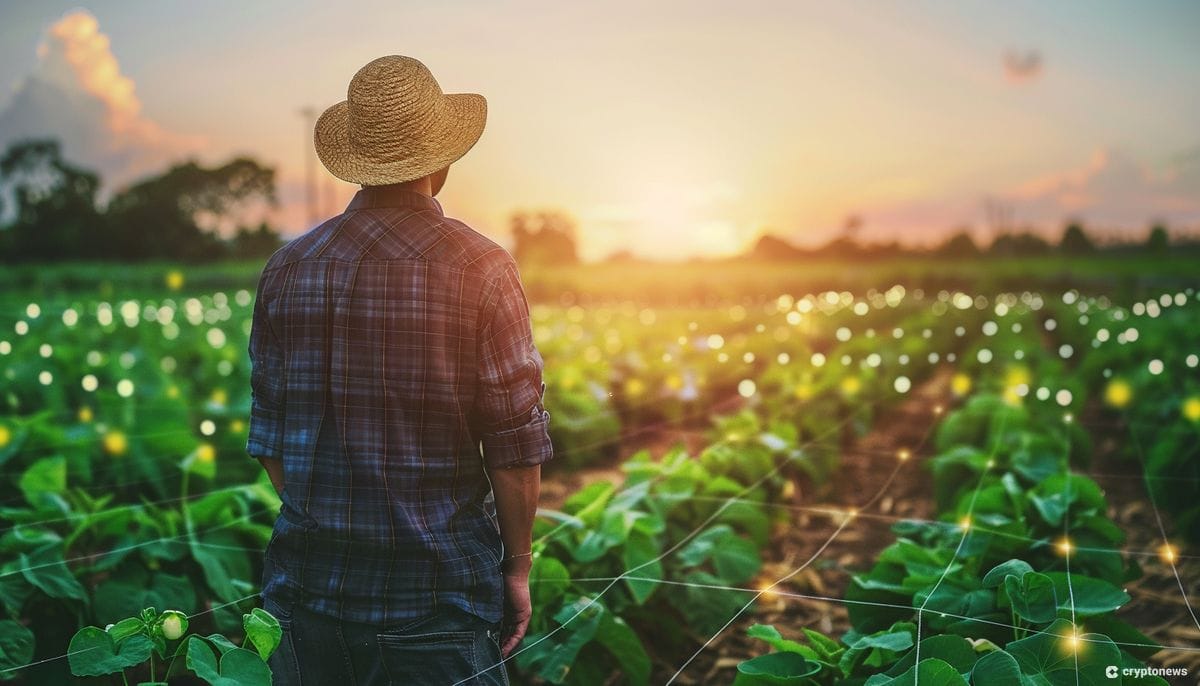Tokenized real-world assets (RWAs) are transforming the traditional financial market by converting physical assets like real estate, art, and commodities into tokens that can be traded on blockchain platforms. This innovation enhances liquidity, security, and transparency within the market. According to Messari, the RWA market has seen significant growth, reaching a total value locked of $8 billion this year. As tokenized RWAs gain traction, they are also being leveraged to promote sustainability efforts. These tokens create transparency and access to sustainable assets, providing real-world measurable impact with financial value. Sunny Lu, CEO of VeChain, highlights that tokenized RWAs utilize blockchain technology to ensure global liquidity for tokens representing sustainability value, thereby benefiting enterprises seeking ESG financing opportunities.
One significant use case for tokenized RWAs in promoting sustainability is supporting smallholder farmers. Dimitra, a platform designed by Jon Trask, offers farmers access to technology for monitoring crops, optimizing yields, and assessing quality. The platform focuses on cacao and avocado markets, which face challenges with transparency and accessibility. Farmers can tokenize their crop plantations through Dimitra’s tech stack, allowing for partial ownership of specific assets like avocado trees or cacao plantations. This digitization creates digital twins of farming assets, enabling transparency throughout the value chain, from farmers to regulators and crop processors. This approach not only benefits farmers but also fosters accountability and efficiency in agricultural practices.
Dimitra’s partnership with One Million Avocados (OMA) in Kenya demonstrates the potential of tokenized RWAs in tackling production challenges in agriculture. By digitizing 10,000 avocado trees on the Polygon blockchain, Dimitra offers local farmers enterprise-grade tech solutions to enhance transparency and data accessibility. The success of this initiative has led Dimitra to expand its efforts to Roraima, Brazil, through the Amazon Cacao Project. By implementing modern agricultural practices and increasing productivity, Dimitra aims to diversify agriculture processes for local farmers, showcasing the scalability of tokenized RWAs in addressing global sustainability challenges.
Tokenized RWAs are also being utilized to address water scarcity issues, with LAKE pioneering a decentralized platform called the “New Water Economy.” Through its LAK3 token and ecosystem, LAKE connects water sources directly to consumers, businesses, and communities, bridging the gap between supply and demand. By leveraging untapped water resources globally, LAKE empowers token holders to engage in water transactions within its ecosystem. While LAKE does not tokenize water itself, its innovative approach provides access to water and its economy, offering a unique solution to the impending water scarcity crisis projected by Morgan Stanley for 2030.
Despite the potential of tokenized RWAs in promoting sustainability, challenges may hinder widespread adoption. Aaron Evans of the Moonbeam Foundation emphasizes the need for rigorous verification processes to ensure the sustainability of underlying assets and define clear criteria for tokenized RWAs. Furthermore, the lack of standardization metrics, reporting inconsistencies, and regulatory uncertainties pose obstacles to the seamless integration of tokenized RWAs. Jon Trask acknowledges the importance of local institutions in navigating regulatory frameworks and educating stakeholders on blockchain concepts to facilitate the adoption of sustainable practices in various industries.
In conclusion, tokenized real-world assets hold great promise in revolutionizing the financial sector and driving sustainability initiatives across diverse sectors. By digitizing tangible assets and leveraging blockchain technology, tokenized RWAs enhance transparency, accountability, and efficiency in asset management and supply chains. As the demand for sustainable solutions grows, tokenized RWAs offer a pathway to address pressing environmental challenges, promote ethical business practices, and foster economic growth. Despite existing challenges, the trajectory of tokenized RWAs points towards a future where sustainable investing and transparent asset management are integral components of the global economy.





















